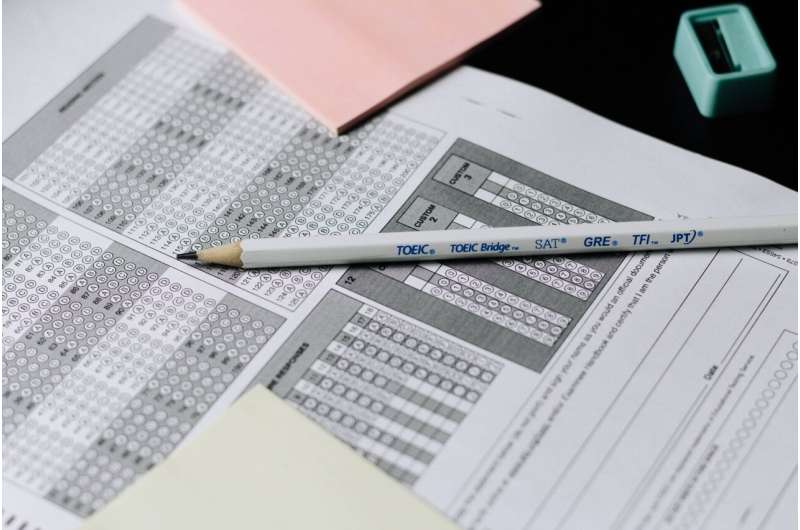Examining four factors that contributed to the record low history scores for US eighth graders

When revealed recently that knowledge of U.S. history and civics had reached an , one Republican lawmaker described the drop as an "."
The test scores showed that of America's eighth graders were not proficient in U.S. history, and were not proficient in civics.
While one top U.S. education official described the scores as "," the official rightly pointed out that the decline actually began nearly a decade ago.
In my view as a , the latest history and civics test scores were a predictable outcome. While it is difficult to establish an exact cause of the decline, here are four factors that I believe contributed to it.
1. Pandemic fears of learning loss
When students gradually began to return to their physical school buildings after they were closed when the COVID-19 pandemic began, , and began to worry about .
Historically, when there are worries about test scores in core subjects like reading and math, other subjects . This deemphasis on subjects beyond reading and math has taken place before. Specifically, after the Bush-era policy in 2002, teachers reported that the emphasis on testing . They also say it , which has been shown to .
2. The politicization of social studies education
At the same time that many education experts were worried about learning loss in reading and math, conservative politicians were working incessantly to limit what can be taught in social studies.
In one of his first acts as governor, Virginia's Glenn Youngkin, for example, for parents to report teachers who taught "," such as " or that a person from a particular race or sex bears responsibility for past actions committed by other members of the same race or sex. The tip line has since been .
Across the country, state legislatures led by conservative politicians have adopted bills banning instruction about aspects of U.S. history that could, they believe, make white children feel "" or "."
All of this has created an atmosphere of for the nation's teachers, who remain largely unsure of what they can and cannot teach. For some teachers, this political context has led them to what they teach about American history, potentially depriving students of a richer understanding of the nation's politics and policy.
3. Education budget cuts
Although research has long shown that , many school districts around the country are currently for .
The pandemic has amplified —and recent national test scores in history and civics are an extension of those disparities. Not only were the average scores on U.S. history tests lower for Black students than white ones, but the decline from 2018 scores to 2022 was 42% greater for . Black students collectively lost 4.5 points, or 1.8% of their average scores, from 2018 to 2022, versus 3.5 points, or 1.29%, for white students.
And the situation was even more stark for . Compared with 2018, children who are eligible for free or reduced lunch—a standard measure of poverty—saw their scores drop more than twice as much as they did for their higher-income peers who did not qualify for the program. Specifically, they lost five points—going from 250.5 in 2018 to 245.5 in 2022, versus just two points for those who do not qualify for free and reduced lunch, who saw their scores drop from 274 to 272 between 2018 and 2022.
4. Teacher shortages
Mounting job stress and the have led many educators to leave schools altogether, generating widespread .
Among teachers who left the profession in 2022, a , as opposed to being laid off or fired, leaving district and state leaders scrambling to in an effort to find adequate classroom support. Evidence suggests that , teachers are critical for students' academic achievement. With that in mind, low test scores in history and civics begin to make more sense.
Keys to improvement
What American kids know—or don't—about the nation's history and civics is a reflection not of the kids, but of the political and economic circumstances that affect their schools.
The factors that support student ±ô±ð²¹°ù²Ô¾±²Ô²µâ€”, and —are well known. In my view, if history and civics scores are to improve, then what is needed is more funding for public schools, more support for professional teachers and the freeing up of educators from policies shaped by contentious political debates about what they can and can't teach about U.S. history in America's classrooms.
Provided by The Conversation
This article is republished from under a Creative Commons license. Read the .![]()





















